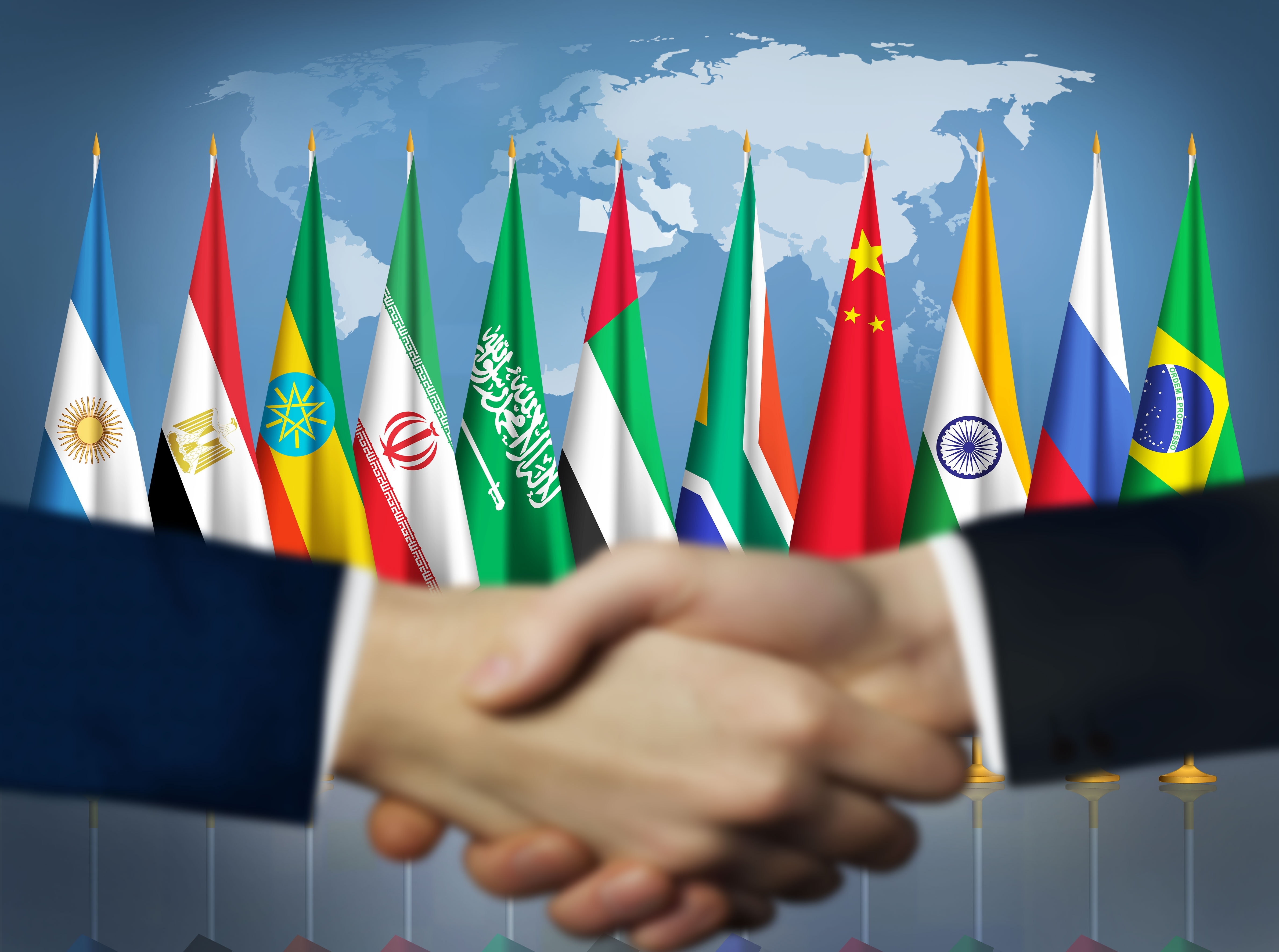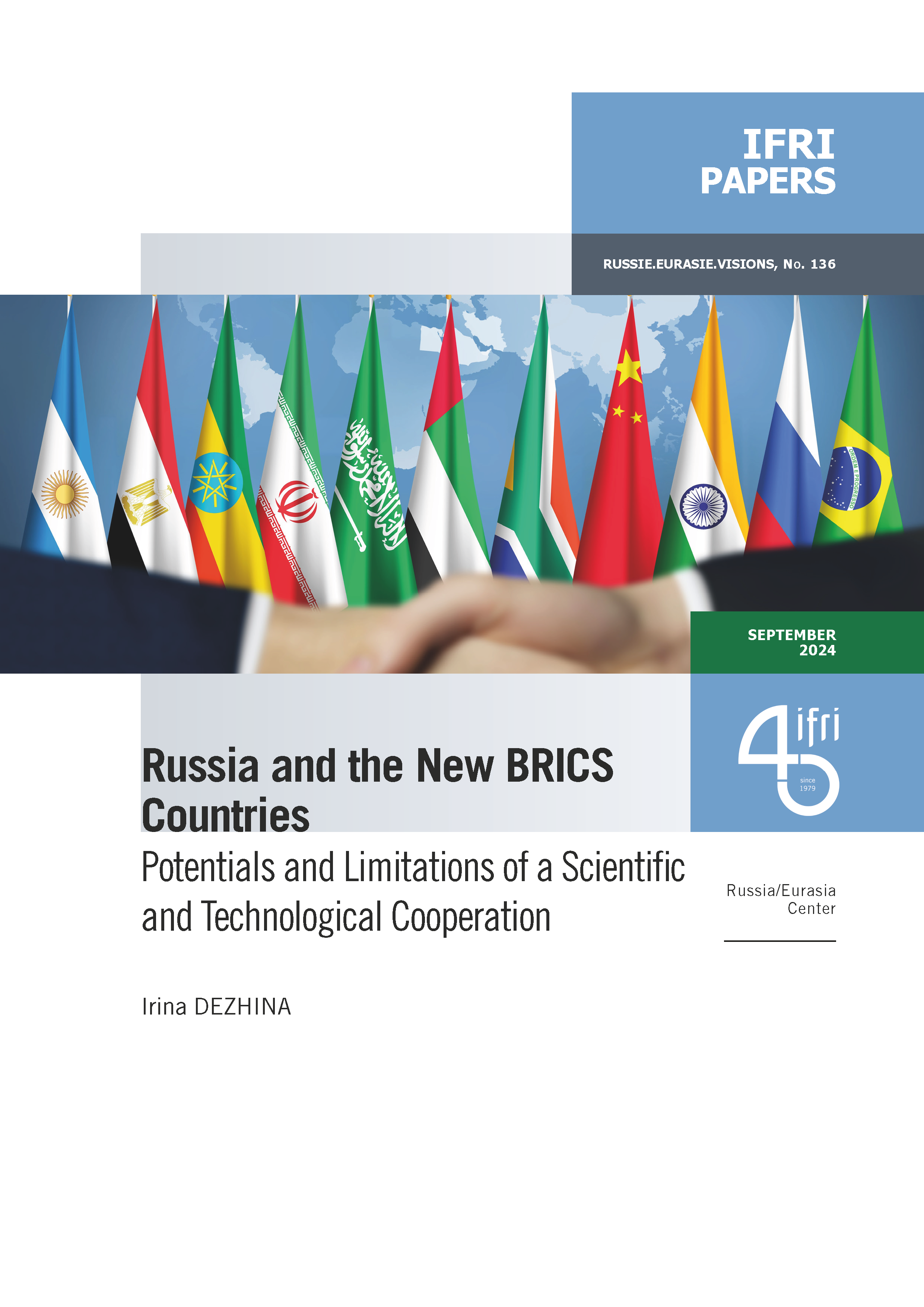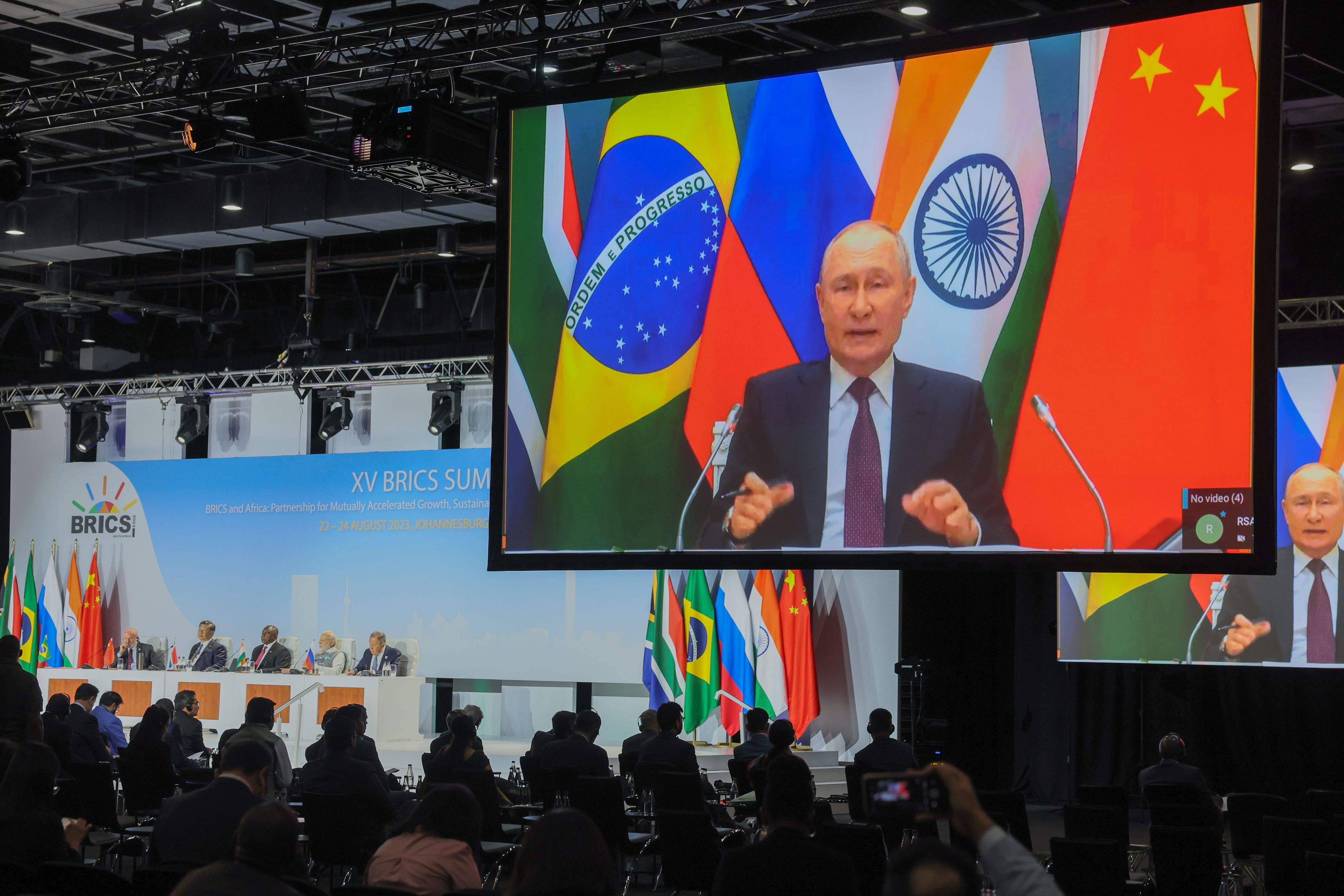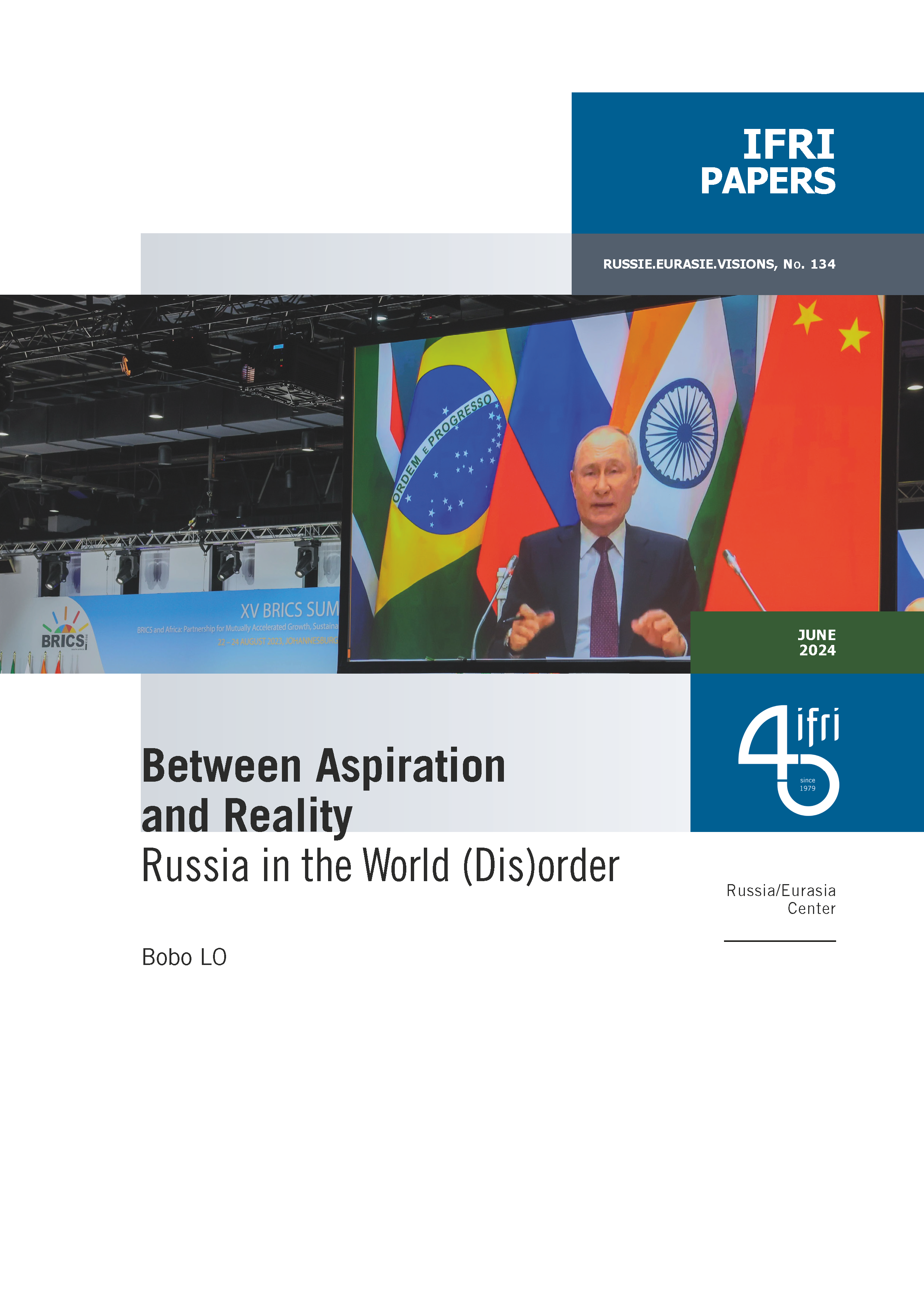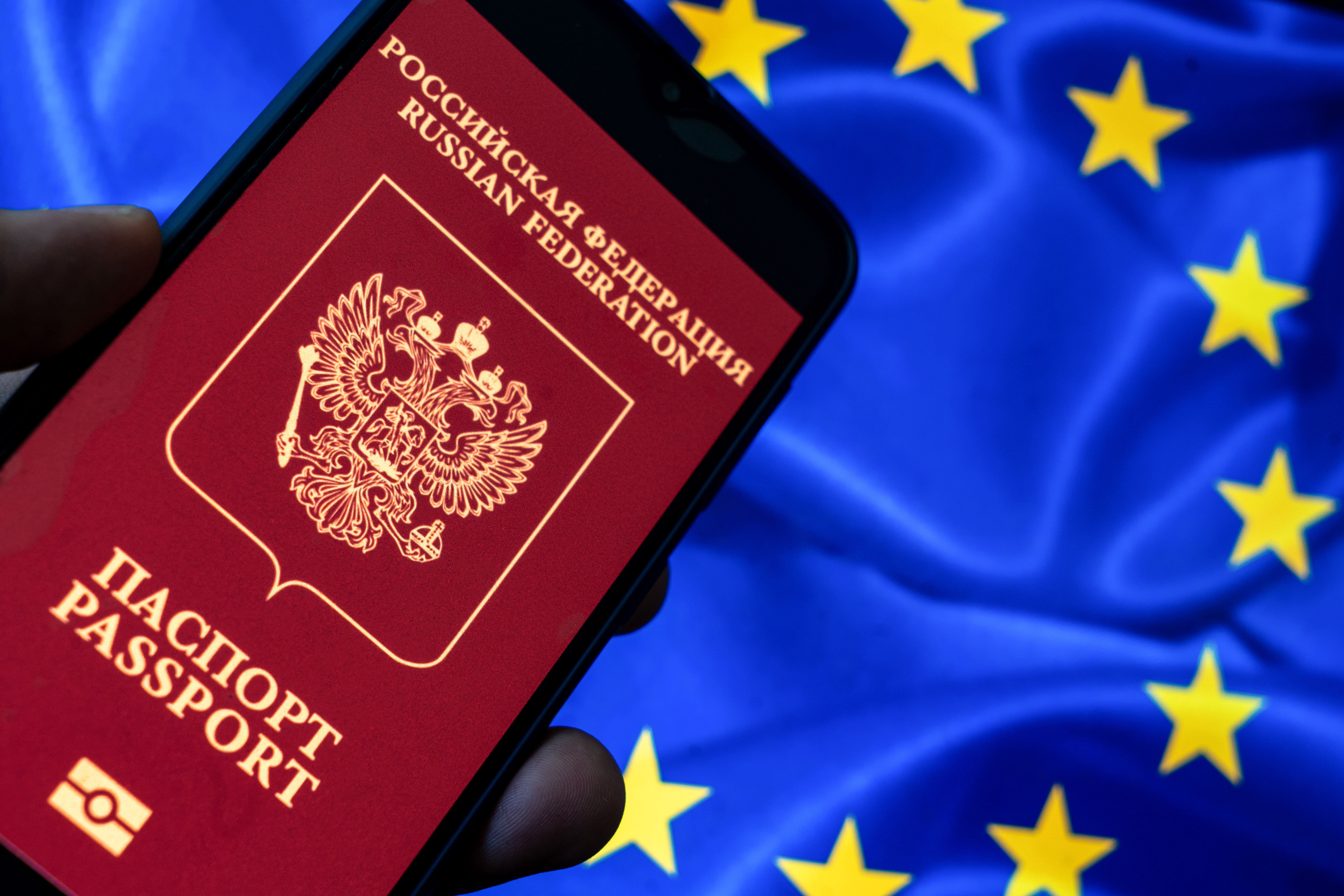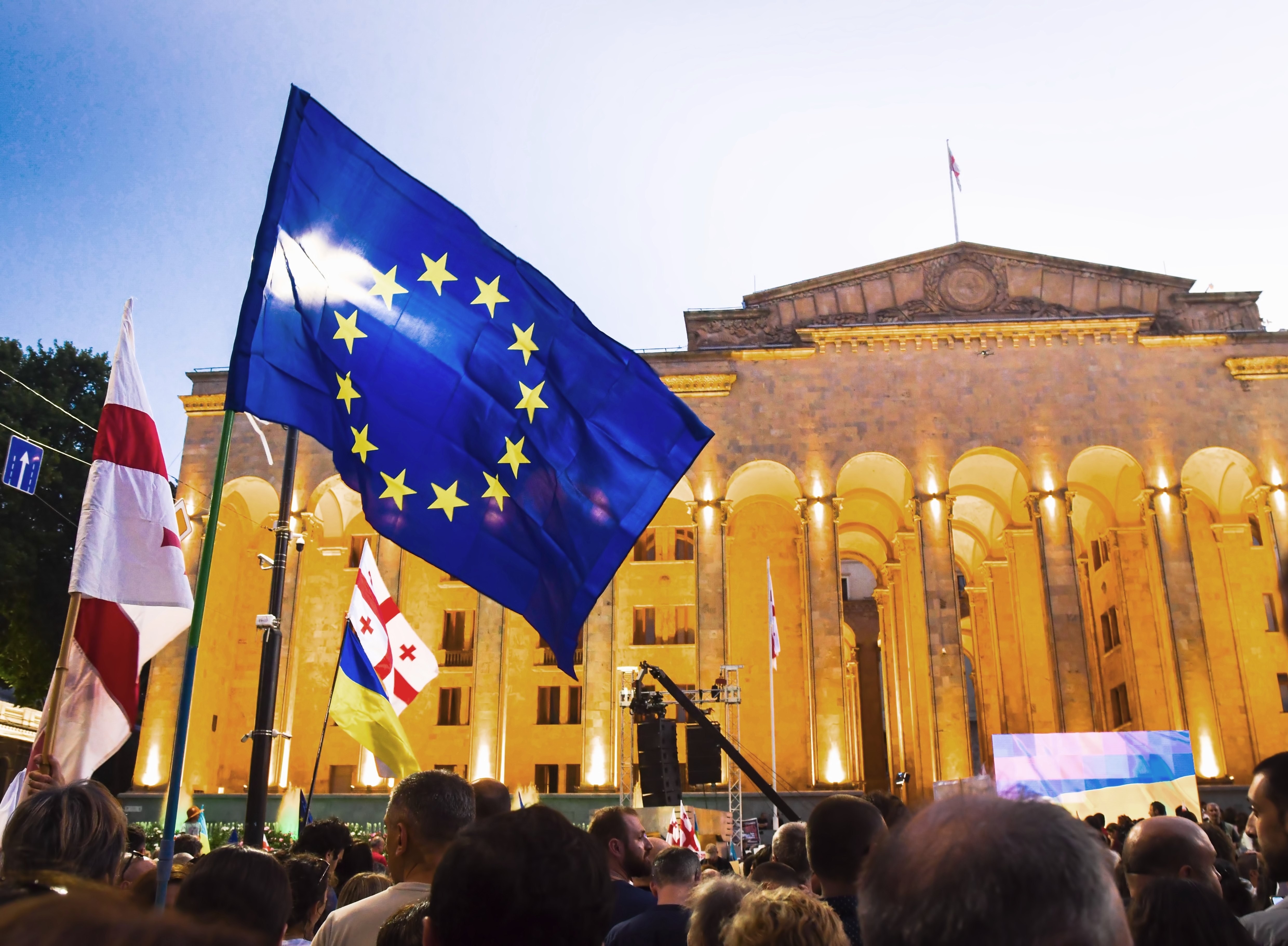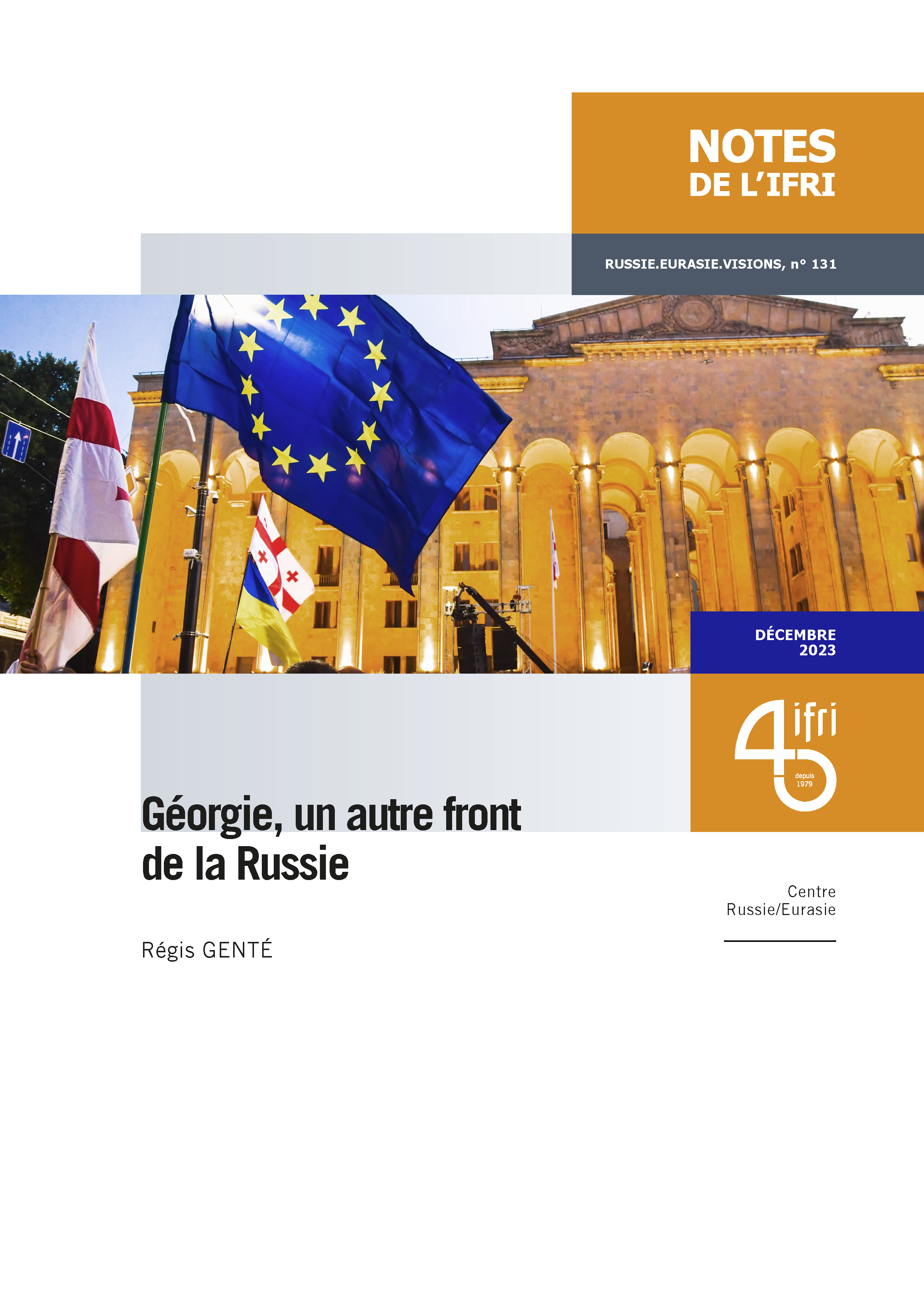Russia/Eurasia Center
Founded in 2005 within Ifri, the Russia/Eurasia Center conducts research and organizes debates on Russia, Eastern Europe, Central Asia, and the South Caucasus. Its goal is to understand and anticipate the evolution of this complex and rapidly changing geographical area in order to enrich public discourse in France and Europe and to assist in strategic, political, and economic decision-making.
Read more


Director of the Russia/Eurasia Center, Ifri
Publications
See all our interventions
Flagship Publications
Titre Bloc Axe
Research Areas
See all our interventions
Titre Axe de recherche
Russian Economy and Society
The Economy and Society research axis within Ifri's Russia/Eurasia Center is interested in economic questions including the impact of Western sanctions on the Russian economy as well as the evolution of society (demography , middle classes, youth, education, opposition, militarization, protest movements, etc.).

Titre Axe de recherche
Russian Domestic Politics
The Domestic Politics research axis within Ifri's Russia/Eurasia Center analyzes Russian domestic politics, the evolution of the political system and its elites, as well as their relations with society.

Titre Axe de recherche
Russian Foreign Policy and Defense
The Foreign Policy and Defense research axis within Ifri's Russia/Eurasia Center examines Russia's relations with the former Soviet republics and the rest of the world, particularly the West and China. A specific importance is given to defense and security issues.
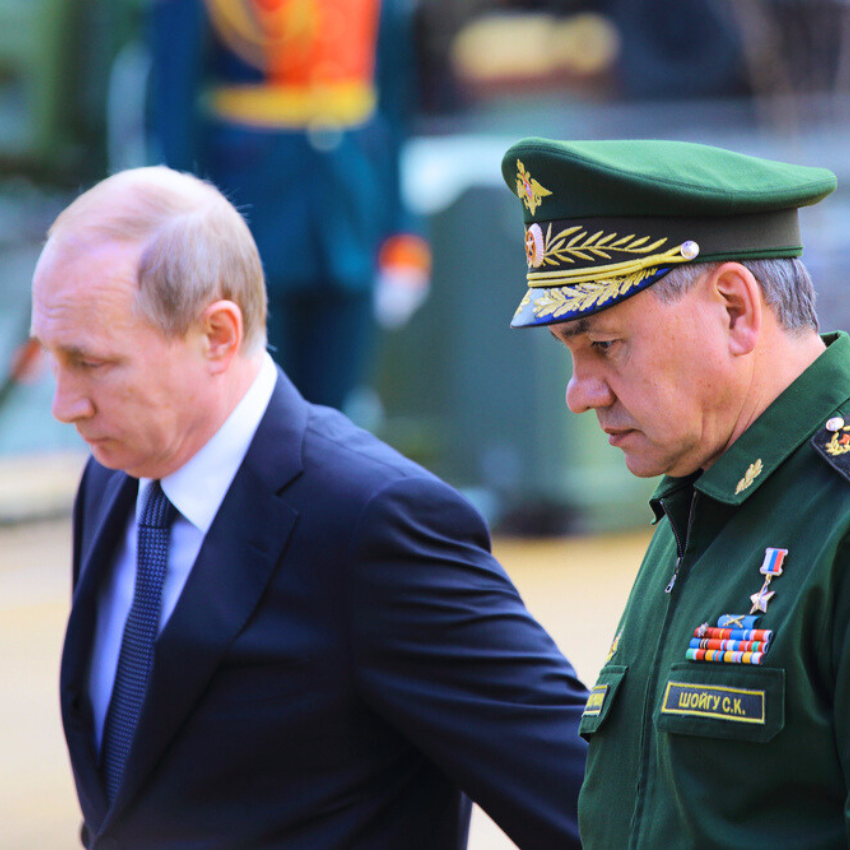
Titre Axe de recherche
Eurasia
The Eurasia research axis within Ifri's Russia/Eurasia Center analyzes internal developments in Ukraine, Moldova, Belarus, Georgia, Armenia, Azerbaijan, Kazakhstan, Uzbekistan, Turkmenistan, Tajikistan and Kyrgyzstan, as well as their relations with the Russian Federation and other regional and global powers.
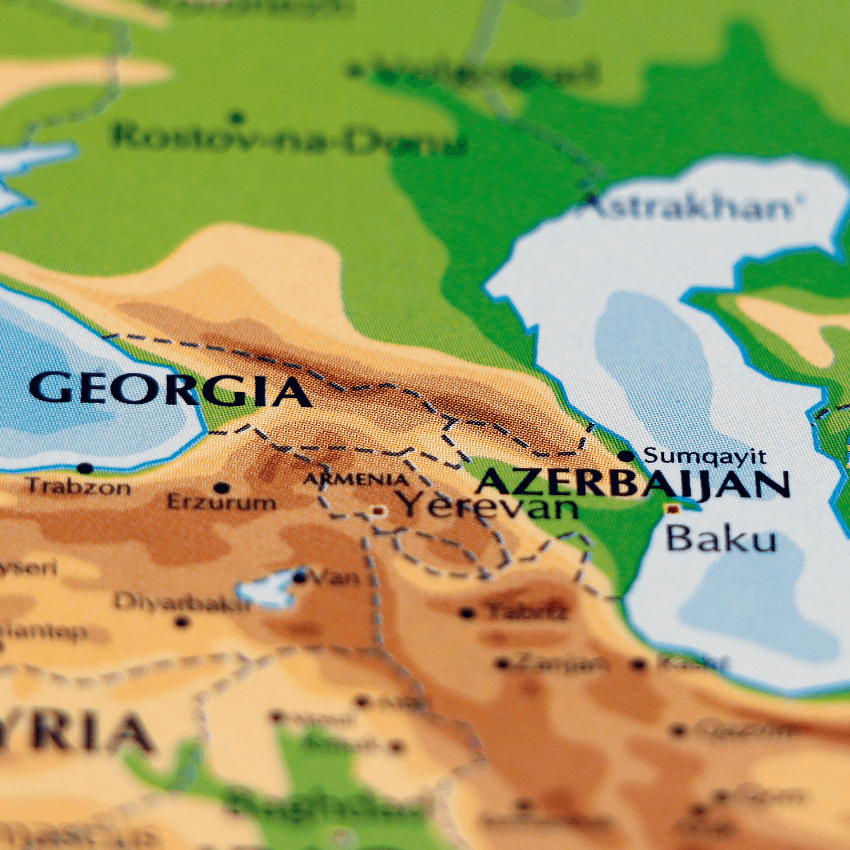
Publications
What Is China to Us? Westernizers and Sinophiles in Russian Foreign Policy
As China's role in shaping the world grows, Russia is increasingly unable to resist its neighbor's economic and political influence. As a result, Russia's China discourse has evolved from the one dominated by Westernizers to one largely controlled by Sinophiles. The latter favor development of relations with China based on Russia's economic and security priorities. Although the official discourse remains focused on strengthening ties with Europe, the state is increasingly subject to pressures by various groups, both inside and outside state structures, with preferences for China. For the Western world, the prospect of the growing "Sinophilization" of Russia's foreign policy implies the need to strengthen ties with Russia, while preserving the existing level of strong relations with China.
Making Good Use of the EU in Georgia: The "Eastern Partnership" and Conflict Policy
After the European Union's intervention in the August 2008 Russo-Georgian war, the EU has stepped up the visibility of its involvement in the South Caucasian state. Its political, economic and manpower engagement is now vital to the country's prosperity and stability. The Eastern Partnership, launched in May 2009, is a further signal of the EU's commitment to the countries on its Eastern borders. However, the new initiative is insufficient to tackle the roots of Georgia's secessionist problems. Indeed, these prove to be more complicated than the Russia vs. Georgia conception that Tbilisi subscribes to. The Union needs to establish a genuine conflict policy to complement the bilateral and multilateral framework of the EaP. Furthermore, the Union's member states need to apply themselves to the EaP's elaboration in order to ensure the project's success; otherwise it risks becoming an empty gesture rather than a viable tool for the development of the EU's partners in the region.
Russie.Nei.Visions is a digital collection of policy papers published in French, English, and Russian by the Russia/NIS Center at Ifri.
Russia and the "Eastern Partnership" after the War in Georgia
Russia's military intervention in Georgia in August 2008 sent a shock wave across the post-Soviet space, particularly the republics to the west and south of Russia. In December 2008, the European Union formalized the Eastern Partnership initiative, directed at Armenia, Azerbaijan, Belarus, Georgia, Moldova and Ukraine. In order to understand the impact of this war both on Russia's bilateral relations with these countries and on the Eastern Partnership area as a whole, this article analyzes the reactions of these former Soviet republics to the Russian offensive. Three types of response are observed: keeping distance from Russia; maintaining a balance between Moscow and the West; and, finally, changing course (from rapprochement to keeping a distance and vice-versa) vis-à-vis the former center of the Soviet Empire.
"Cool Neighbors": Sweden's EU Presidency and Russia
Sweden and Russia are close neighors with a complicated relationship. They have normal political relations with growing economic and cultural exchanges, especially on a regional basis; however, they both foster an age-old distrust, and have diverging attitudes toward democracy and human rights. Furthermore, Sweden is not interested in Russian gas exports or a gas pipeline under the Baltic Sea. During its EU Presidency in 2009, Sweden is likely to prioritize issues such as climate change, economic growth, and the Baltic Sea region. It will continue the efforts of previous Presidencies for a new partnership agreement with Russia, however. The adoption of an EU strategy for the Baltic Sea region will be a key task, and it will be linked to the Northern Dimension policy, which focuses on regional cooperation with Russia. Sweden will also push the implementation of the Eastern Partnerhip with Russia's western and southern neighbors. This may, however, strain relations with Russia and lead to increased pressure on the prospective partners. In general, Sweden is interested in cooperation with Russia, but will not jettison its support for democratic values and human rights to attain it.
The Challenges of Russia's Demographic Crisis
Russia is facing demographic challenges that are common to all developed countries, but significantly aggravated by a range of historic circumstances that have become highly unfavorable over the course of many demographic processes. Among the main challenges are very high mortality, very low fertility and, as a result, the continued negative natural increase and overall population decline in the country. Now, these challenges are exacerbated by new ones, connected with a worsening age balance, the decrease in working-age population and the growth of dependency ratio, especially as a consequence of an ageing population.
Even if an active and effective demographic and migration policy were to be implemented in Russia, it would be impossible to reach the fundamental turning point in the demographic situation-stabilization and growth in Russia's population-in the near future. For this reason, a sound policy should involve striving for change in areas that can, in principle, be changed (decrease in mortality, some growth in fertility, attraction and integration of a reasonable number of migrants), and, at the same time, adapting economic and social institutions to those elements of the new demographic reality that cannot be changed (decrease in population, ageing population, etc.).
NATO and Russia: Post-Georgia Threat Perceptions
The 2008 war in Georgia is but a milestone on the downward curve in NATO-Russia relations, one that has been characterized by misunderstandings, misplaced expectations and missed opportunities. This is not a new Cold War, but there is an obvious need for new ideas rather than repackaged old ones. NATO has to be sensitive to genuine Russian security concerns, and the latter should appreciate that manipulation, intimidation and attempts at dividing the Alliance are not shortcuts to superpower restoration. There is ample room for cooperation if the right lessons are learned, the gap between rhetoric and reality is reduced, and policies are governed by patience and pragmatism.
Russia in Latin America: Geopolitical Games in the US's Neighborhood
Russia's policy in Latin America is not a new policy but reflects long-term aspirations to assert itself as a global power and advance the idea of a multipolar world. It is a fundamentally geopolitical approach directed against the US with an economic component, rather than an economic approach to foreign policy with strategic objectives. Moscow's 2008 initiatives in the region reflected enhanced capabilities which are now in decline due to the global economic crisis. The real threat that Moscow poses to the region stems from its weapons sales to Venezuela, which the latter is already using in support of insurgency in Colombia if not elsewhere.
Obama and Russia: Facing the Heritage of the Bush Years
Barack Obama's recent overtures toward Russia show a desire to break away from the Bush years, which were characterized by a profound deterioration in American-Russian relations. To gauge the chances of success for this openness, we must reexamine the Bush legacy weighing on the resumption of relations, especially on their strategic dimension. Indeed, direct exchanges between the two countries over the course of the past eight years have increasingly turned towards head-on opposition. Indirect exchanges between the two states in Russia's neighborhood also display contradictory influences, with Iran and Georgia bringing to light deep-rooted differences fuelled by cold war-style rhetoric. In other words, even if Barack Obama appears to be imposing his own style by reorienting America's foreign policy, his scope for action is partly limited by the legacy of his predecessor.
Russia's Armed Forces: The Power of Illusion
Paradoxically, Russia's military success during the "five day war" in the South Caucasus in August 2008 highlighted the deplorable state of its conventional armed forces, weakened by years of underfunding, failed reforms and declining social prestige. Nevertheless, the Kremlin sees the military as one of the principal elements in the restoration of Russian power. As a result, it seeks to promote a positive image of the armed forces, which is nothing more than an illusion, manipulated for both domestic and international ends. The return of heavy weaponry to annual parades on Red Square and Soviet-era symbols on military uniforms, the resumption of strategic bomber flights, and the deployment of Russia's navy to Latin America and the Caribbean all play a role in the staging of this illusion. Taking into account Russia's current economic difficulties, it will be difficult to realize the ambitious reform agenda laid out after the Georgian war; in these conditions it remains likely that the Russian authorities will be tempted to undertake a marketing campaign, rather than a reform program.
Roger N. McDermott is an Honorary Senior Fellow at the Department of Politics & International Relations, University of Kent, Canterbury, and a Senior Fellow in Eurasian Military Studies at the Jamestown Foundation, Washington DC. He specializes in defense and security issues in Russia, Central Asia and the South Caucasus, and his published research appears in journals such as the Journal of Slavic Military Studies and the International Journal of Intelligence and Counterintelligence.
Russie.Nei.Visions is an electronic collection of policy papers published in French, English and Russian by the Russia/NIS Center, Ifri.
China as an Emerging Donor in Tajikistan and Kyrgyzstan
China has become an important provider of development assistance (through grants and soft loans) to Central Asian states. The focus of this study is the two states of the region most in need of aid: Tajikistan and Kyrgyzstan. The paper discusses the characteristics of Chinese assistance, comparing its activities and policies in Central Asia with those in Africa, and draws conclusions about the implications of such growing engagement. Given the European Union's declared interest in the region, notably through its Strategy for Central Asia adopted in 2007, the opportunity is taken to suggest ways in which China's growing development role should be understood in Brussels.
The report is based on research trips to Tajikistan and Kyrgyzstan in June-August 2008 supported by a grant from the Norwegian Ministry of Foreign Affairs. It is part of the Regional Competence-Building for Think Tanks project in the South Caucasus and Central Asia organized by the Norwegian Institute of International Affairs.
The Team

Our research fellows: Russia/Eurasia Center
Support independent French research
Ifri, a foundation recognized as being of public utility, relies largely on private donors – companies and individuals – to guarantee its sustainability and intellectual independence. Through their funding, donors help maintain the Institute's position among the world's leading think tanks. By benefiting from an internationally recognized network and expertise, donors refine their understanding of geopolitical risk and its consequences on global politics and the economy. In 2024, Ifri will support more than 70 French and foreign companies and organizations.











